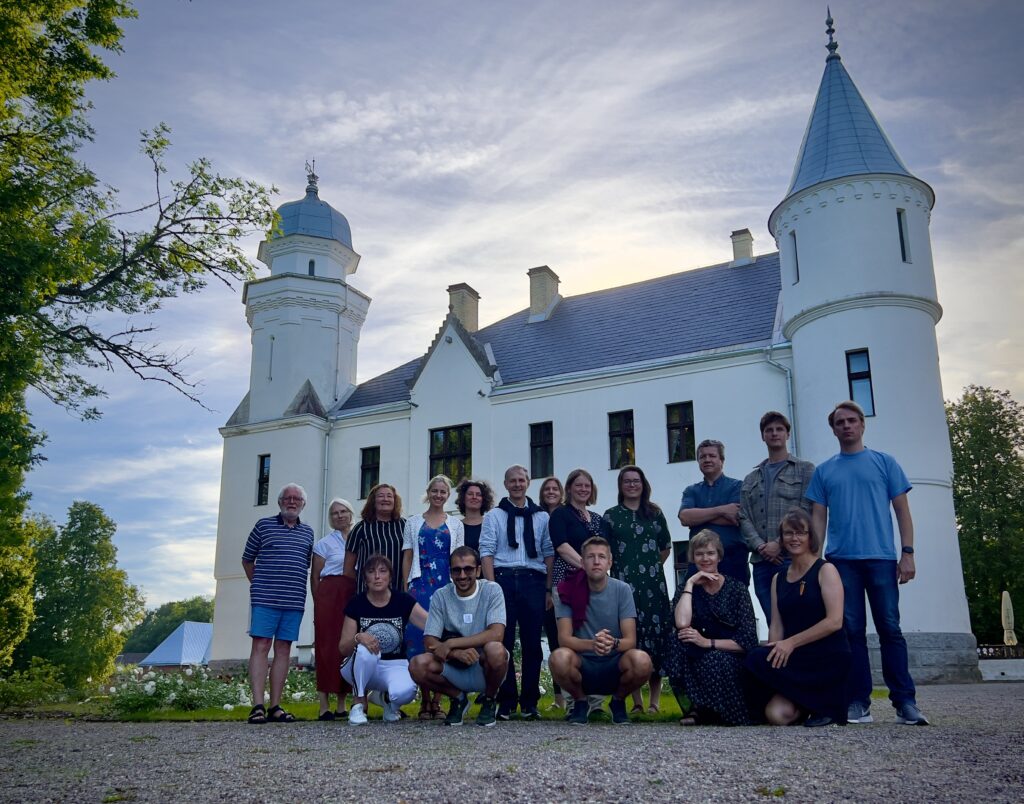Eluaseme ja peremuutuste uurimisrühm
Housing and Family Dynamics research group

Tallinn University,
School of Governance,
Law and Society

Prof. Allan Puur
Tallinn University,
School of Governance,
Law and Society
The Housing and Family Dynamics (HFD) research group is based on the Estonian Institute for Population Studies of the School of Governance, Law and Society at Tallinn University. The Institute is a leading unit in Estonia in the field of demographic studies that offers a demography programme at the doctoral level. The HFD research group conducts research on a wide range of topics related to family dynamics and fertility, including union formation and dissolution, educational and ethnic differences in childbearing and partnership processes, gender roles, effects of family policy measures, etc. Research on family dynamics and fertility is conducted from both country-specific and comparative perspectives, and covers both contemporary and historical developments. Members of the HFD research group have also contributed to research on population ageing (living arrangements of older persons, impact of pension age reforms, material deprivation of older persons and its risk factors). Results of the analyses are regularly published in respected international demography journals (Demography, European Journal of Population, Population Studies, Population Research and Policy Review, Demographic Research, Population, Place, and Space, Spatial Demography, etc.). The HFD research group has been successful in applying for competitive funding from domestic as well as international sources. Members of the research team have been actively involved in various advisory activities with governmental and non-governmental institutions (Ministry of Social Affairs, Committee for Population Issues at Riigikogu, Statistical Office of Estonia).
The HDF research group has made a major contribution to the development of data infrastructure for demographic research in Estonia. Members of the research group have been actively involved in bringing microdata from Estonian census and registers into scientific circulation. This has opened up an individual-level longitudinal perspective into societal changes on a population-wide scale that unfolded in Estonia during the past three decades. The HDF research group initiated the computerisation of the Estonian Family Register, a unique longitudinal database that provides marital and childbearing histories of 1.2 million women and men born in the period of demographic modernisation. The HDF research group is responsible for the Estonian Generations and Gender Survey (GGS2020-EE), a national part of the international GGP infrastructure programme included in the ESFRI roadmap. Since 2019, GGS2020-EE been included in the Estonian roadmap of national research infrastructures. Members of the research group have also contributed to the implementation of Survey of Health, Ageing and Retirement in Europe (SHARE) in Estonian and the Infotechnological Mobility Observatory (IMO). Research activities planned in the context of the CoE in Energy Efficiency benefit from several of these infrastructures.
In the context of CoE, the contribution of the HFD research group relates to the study of the link between housing, on the one hand, family dynamics and fertility, on the other hand. For several reasons, the literature on this link appears limited, from both theoretical and empirical viewpoints. Young adulthood, which is a crucial stage of the life course with respect to family formation, is also a time when people are highly mobile. As a result, countries often struggle to accurately register the residence of young adults which makes it difficult to study the effects of housing-related variables on family dynamics based on administrative data. Furthermore, large longitudinal studies that cover both housing and family dynamics are rare. Against that backdrop, the HFD research group will undertake research based on the linked census and register data, noted above, to investigate the link between housing conditions and fertility in Estonia. Single-country studies will be complemented by comparative analyses drawing on the EU Statistics on Income and Living Conditions (EU-SILC), an EU-wide panel dataset that has not been used so far in studying the link between housing and fertility in a comparative framework. The analyses would concentrate on housing characteristics that have been shown to produce sizeable differences in family size and childbearing probabilities.
Competencies of the HFD research group enable the CoE to connect housing developments and renovation to a complex web of societal challenges arising from today’s low fertility. To this end, many countries, including Estonia, have installed generous family policy measures such as child benefits and parental leave. However, successful coping with these challenges calls for a more comprehensive approach that would pay more attention to housing conditions, a major prerequisite for starting a family and having children.

